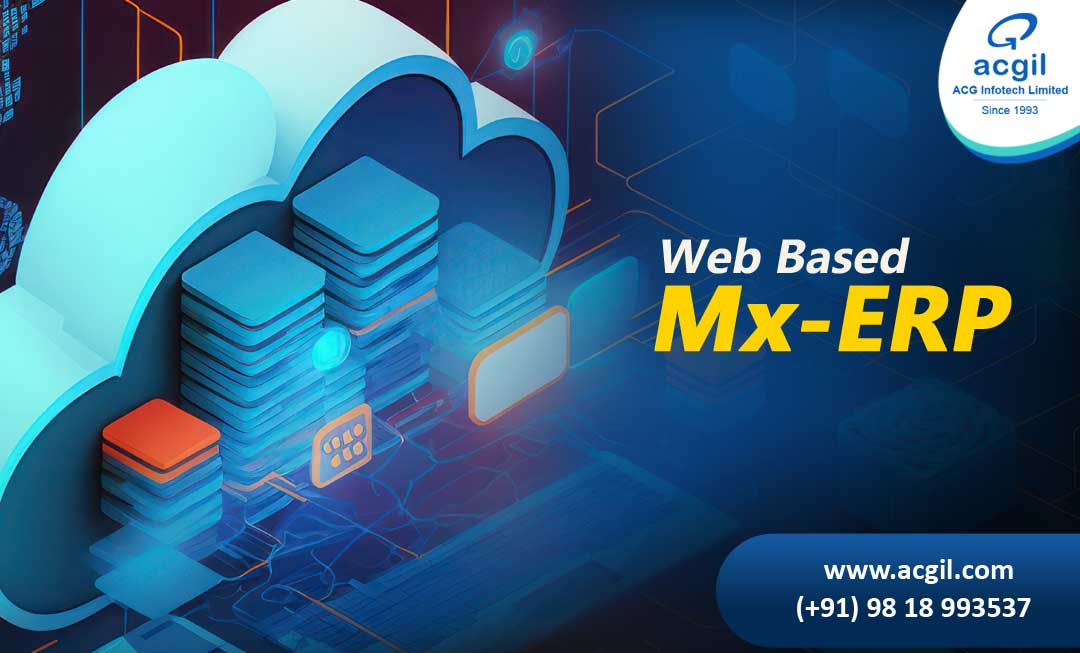Are you a small business owner searching for the right web-based Enterprise Resource Planning (ERP) software? As technology continues to advance, businesses of all sizes are recognizing the need for efficient and streamlined operations. Implementing an ERP system can significantly enhance your business processes, improve productivity, and boost overall performance. However, with numerous options available in the market, selecting the most suitable web-based ERP software for your small business can be a daunting task. In this blog post, we will guide you through the essential factors to consider when choosing the right web based ERP software that aligns with your small business requirements.
Table of Contents
Introduction
Understanding Web-Based ERP Software
Benefits of Web-Based ERP Software
Key Considerations for Choosing Web-Based ERP Software
- Scalability and Flexibility
- Customization Options
- Integration Capabilities
- User-Friendly Interface
- Security and Data Protection
- Mobile Access
- Vendor Support and Training
- Cost-Effectiveness
Top Web-Based ERP Software Solutions for Small Businesses
- Software A
- Software B
- Software C
- Software D
- Software E
Steps to Select the Right Web-Based ERP Software
- Assess Your Business Needs
- Conduct Thorough Research
- Evaluate Vendor Reputation
- Request Demos and Trials
- Consider Scalability
- Analyze Integration Potential
- Evaluate User-Friendliness
- Review Security Measures
- Check Mobile Access
- Assess Support and Training
- Consider Cost and ROI
Conclusion
FAQs
Q1: What is web-based ERP software?
Q2: Why is scalability important in choosing ERP software?
Q3: How can I ensure data security with web-based ERP software?
Q4: Can web-based ERP software be accessed on mobile devices?
Q5: How do I determine the cost-effectiveness of ERP software?
- Introduction
In today’s competitive business landscape, small businesses require efficient tools and systems to remain competitive. Web-based ERP software offers a comprehensive solution that integrates various business functions into a single platform, enabling seamless communication and data flow across departments. By automating processes and providing real-time insights, ERP software empowers small businesses to make informed decisions and drive growth.
- Understanding Web-Based ERP Software
Web-based ERP software, also known as cloud ERP software, is hosted on remote servers and accessed through web browsers. It eliminates the need for on-premises infrastructure and provides businesses with the flexibility to access and manage their ERP system from anywhere with an internet connection. Web-based ERP software offers scalability, cost savings, and ease of implementation compared to traditional on-premises ERP solutions.
- Benefits of Web-Based ERP Software
Implementing the right web-based ERP software can bring several benefits to your small business:
- Streamlined Processes: Web-based ERP software centralizes data, streamlines processes, and eliminates manual tasks, improving overall efficiency.
- Real-Time Insights: With web-based ERP software, you can access real-time data and generate insightful reports for informed decision-making.
- Enhanced Collaboration: The collaborative features of web-based ERP software facilitate seamless communication and coordination across departments.
- Cost Savings: Web-based ERP software eliminates the need for costly on-premises infrastructure and provides predictable subscription-based pricing models.
- Scalability: As your small business grows, web-based ERP software allows you to scale up or down easily, accommodating changing business needs.
- Key Considerations for Choosing Web-Based ERP Software
When selecting the right web-based ERP software for your small business, consider the following factors:
Scalability and Flexibility
Ensure that the ERP software can scale alongside your business growth. It should accommodate increased transaction volumes, additional users, and evolving business requirements. Flexibility is crucial as it allows customization and adaptation of the software to fit your unique processes.
Customization Options
Look for web-based ERP software that offers customization options. This enables you to tailor the system to your specific business needs, ensuring seamless integration with existing workflows.
Integration Capabilities
Consider the integration capabilities of the ERP software. It should seamlessly integrate with other essential business applications such as CRM, accounting, e-commerce, and inventory management systems.
User-Friendly Interface
Choose a web-based ERP software with an intuitive and user-friendly interface. This ensures ease of use and reduces the learning curve for your employees, promoting faster adoption and increased productivity.
Security and Data Protection
Data security is paramount for any business. Verify that the web-based ERP software provides robust security measures such as encryption, access controls, and regular data backups. Additionally, ensure compliance with data protection regulations applicable to your industry.
Mobile Access
In today’s mobile-driven world, having access to your ERP system on mobile devices is essential. Check if the web-based ERP software offers mobile apps or responsive web design for seamless access and management on the go.
Vendor Support and Training
Evaluate the vendor’s support services and availability. Ensure they offer comprehensive training programs, documentation, and responsive customer support to assist your small business during implementation and beyond.
Cost-Effectiveness
Consider the total cost of ownership (TCO) of the web-based ERP software, including licensing fees, implementation costs, training expenses, and ongoing maintenance. Assess the return on investment (ROI) potential and the long-term benefits the software can bring to your small business.
- Top Web-Based ERP Software Solutions for Small Businesses
In this section, we will briefly highlight five popular web-based ERP software solutions suitable for small businesses. Please note that this is not an exhaustive list, and you should conduct further research and evaluations based on your specific requirements.
- Software A: Software A offers a user-friendly interface with robust functionality, including modules for finance, inventory management, and CRM. It provides seamless integration with popular third-party applications and offers scalability to support growing businesses.
- Software B: Software B is known for its extensive customization options, allowing small businesses to tailor the system to their unique processes. It offers strong project management capabilities and integrates well with e-commerce platforms.
- Software C: Software C is a cost-effective web-based ERP solution designed specifically for small businesses. It provides essential features such as accounting, HR management, and supply chain management. The user-friendly interface makes it suitable for businesses with limited technical expertise.
- Software D: Software D focuses on scalability and flexibility, catering to the evolving needs of small businesses. It offers advanced reporting and analytics capabilities, allowing businesses to gain valuable insights for strategic decision-making.
- Software E: Software E stands out for its mobile-friendly design and intuitive user interface. It offers comprehensive modules for inventory management, order processing, and financials. It also provides robust security measures to protect your sensitive business data.
- Steps to Select the Right Web-Based ERP Software
To choose the right web-based ERP software for your small business, follow these steps:
- Assess Your Business Needs: Identify your specific requirements and pain points that the ERP software should address.
- Conduct Thorough Research: Explore available options, read customer reviews, and consult with industry experts to shortlist suitable web-based ERP software solutions.
- Evaluate Vendor Reputation: Research the reputation and track record of the ERP software vendors. Look for customer testimonials and case studies to gain insights into their credibility.
- Request Demos and Trials: Request demos or trials from the shortlisted vendors to evaluate the software’s usability, features, and compatibility with your business processes.
- Consider Scalability: Ensure that the web-based ERP software can accommodate your business’s growth trajectory and future expansion plans.
- Analyze Integration Potential: Assess how well the ERP software integrates with other essential applications you currently use or plan to adopt in the future.
- Evaluate User-Friendliness: Opt for software with an intuitive interface that requires minimal training and promotes user adoption.
- Review Security Measures: Verify the security features offered by the ERP software to safeguard your sensitive business data.
- Check Mobile Access: If mobile access is crucial for your business operations, ensure that the software provides mobile apps or responsive web design.
- Assess Support and Training: Determine the level of support and training provided by the vendor to facilitate a smooth implementation and ongoing usage.
- Consider Cost and ROI: Evaluate the total cost of ownership and the potential return on investment the ERP software can deliver in the long run.
- Conclusion
Choosing the right web-based ERP software development company is a critical decision for small businesses. By considering factors such as scalability, customization options, integration capabilities, user-friendliness, security, mobile access, vendor support, and cost-effectiveness, you can select an ERP solution that aligns with your business goals and processes. Conduct thorough research, evaluate multiple options, and prioritize your business requirements to make an informed decision. Implementing the right web-based ERP software can empower your small business with streamlined operations, enhanced productivity, and sustainable growth.
FAQs
Q1: What is web-based ERP software?
Web-based ERP software, also known as cloud ERP software, is a system that is hosted on remote servers and accessed through web browsers. It provides businesses with a centralized platform to manage various functions such as finance, inventory, HR, and customer relationship management.
Q2: Why is scalability important in choosing ERP software?
Scalability is crucial in choosing ERP software as it ensures the system can adapt and accommodate your business’s growth. With scalable ERP software, you can easily handle increased transaction volumes, add new users, and support evolving business requirements.
Q3: How can I ensure data security with web-based ERP software?
To ensure data security with web-based ERP software, look for features such as encryption, access controls, regular data backups, and compliance with data protection regulations. It is also important to choose a reputable vendor known for maintaining high-security standards.
Q4: Can web-based ERP software be accessed on mobile devices?
Yes, many web-based ERP software solutions offer mobile access through dedicated mobile apps or responsive web design. This allows you to access and manage your ERP system on the go, providing flexibility and convenience.
Q5: How do I determine the cost-effectiveness of ERP software?
To determine the cost-effectiveness of ERP software, consider the total cost of ownership (TCO), including licensing fees, implementation costs, training expenses, and ongoing maintenance. Assess the potential return on investment (ROI) and the long-term benefits the software can bring to your small business.

